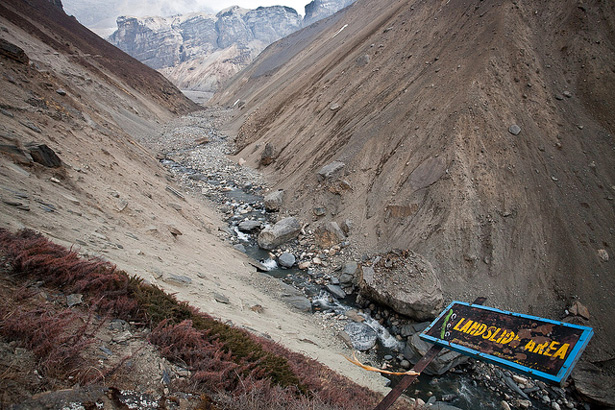-
Susannah Fisher, International Institute for Environment and Development
In Nepal, Measuring Climate Change Resilience From the Community Up
February 11, 2014 By Wilson Center Staff
The original version of this article, by Susannah Fisher, appeared on the International Institute for Environment and Development.
Nepal’s vulnerability to a warming climate became clear in May 2012 when the Seti River burst its banks during flash floods and landslides that killed more than 60 people. Scientists say such events are likely to become more common as the world warms, so communities need to adapt.
The government of Nepal is well aware of the challenges. With support from development partners, it is investing heavily in climate change adaptation. For example, the Pilot Program on Climate Change Resilience (part of the Climate Investment Funds) is providing $110 million in grants and loans. The UK Department for International Development and the European Union are supporting district and village institutions to develop and implement Local Adaptation Plans of Action to address the impacts of climate change.
The government and their partners need to understand how these multiple efforts contribute as a whole to national resilience and to changes at the community level. But the only way to do this is by effectively monitoring and evaluating changes in community resilience to see what works and what doesn’t.
That’s easier said than done. It’s difficult to measure shifts in resilience to long-term climate change if we don’t know what people will need to be resilient to in, say, 20 years.
Continue reading on the International Institute for Environment and Development.
Photo Credit: Landslide area in Nepal, courtesy of flickr user Greg Willis.
 A Publication of the Stimson Center.
A Publication of the Stimson Center.



